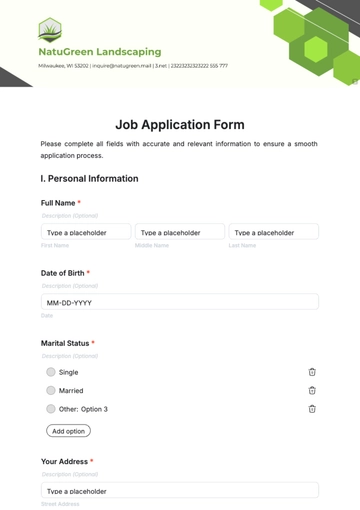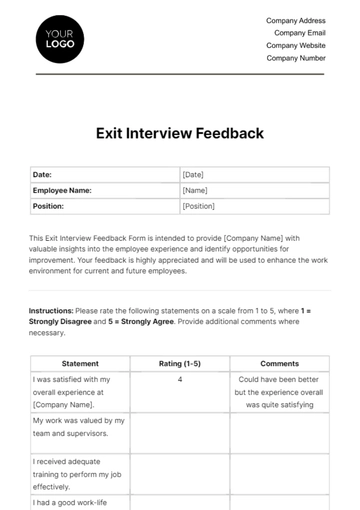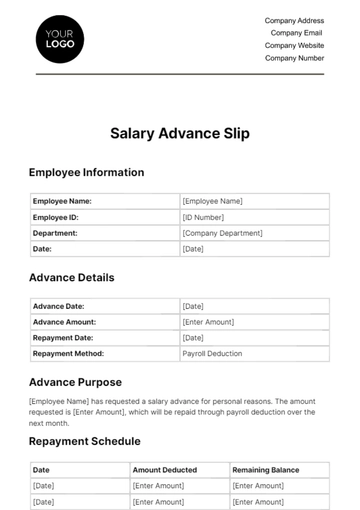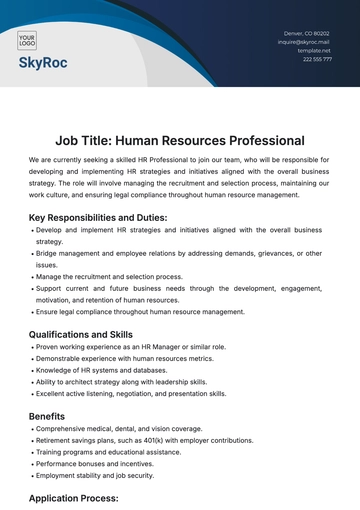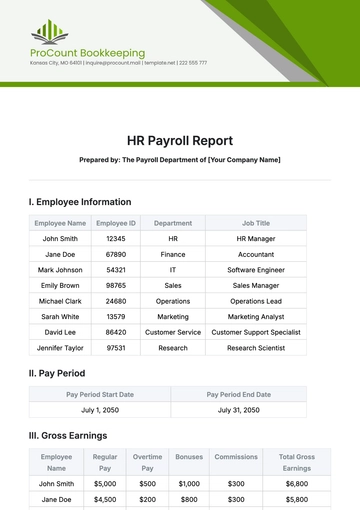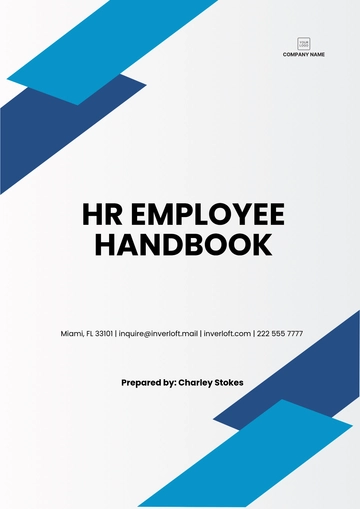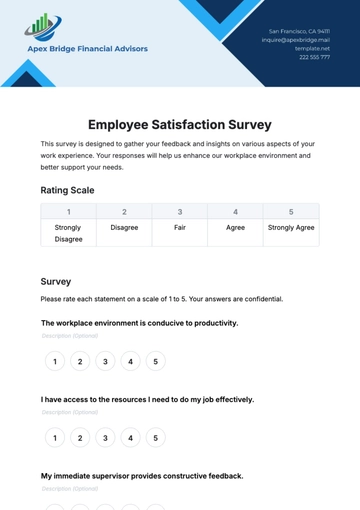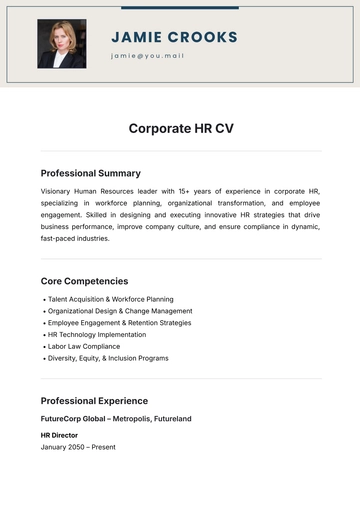Free Health Savings Account (HSA) Enrollment Guide HR
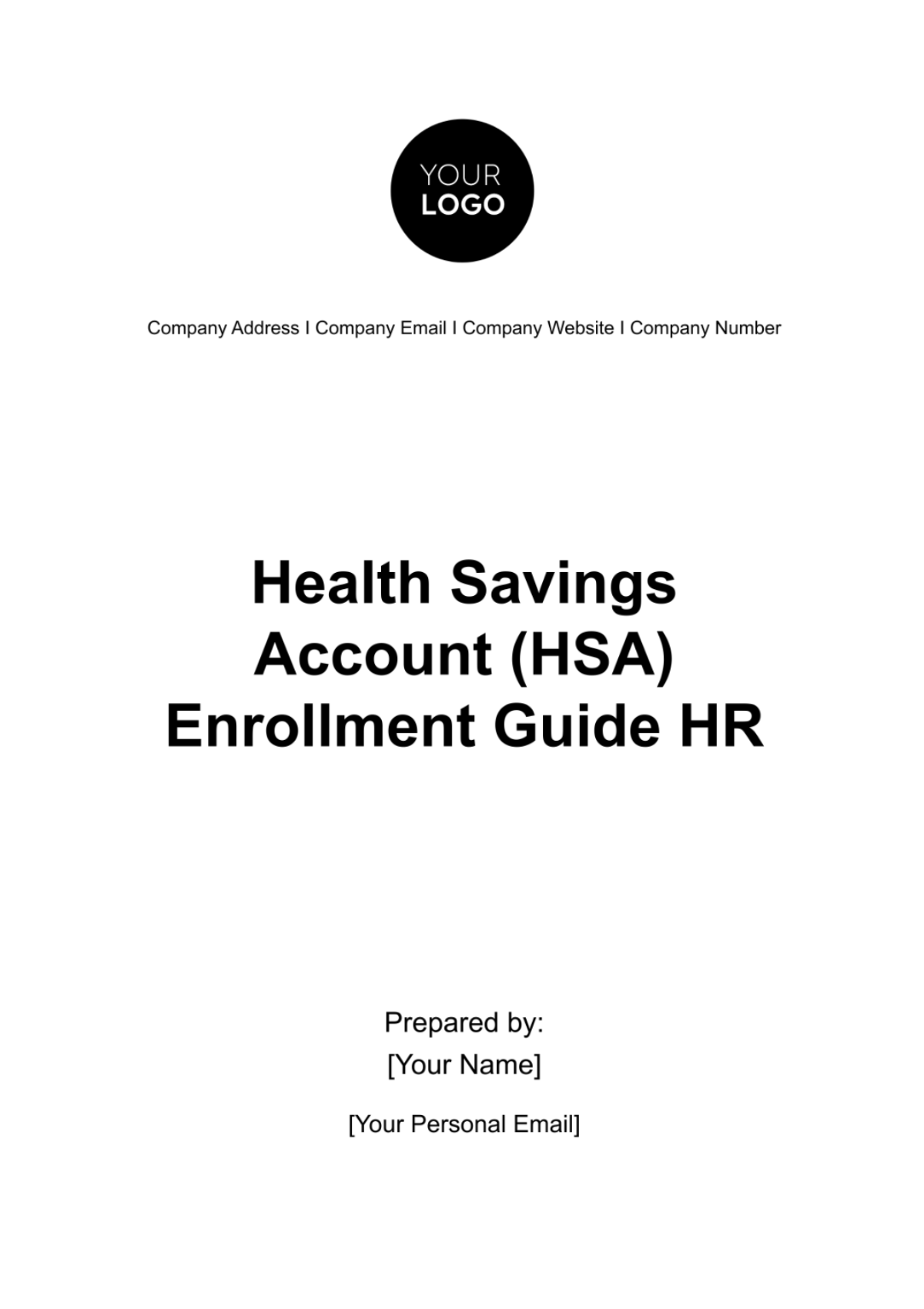
Health Savings Accounts (HSA) are a pivotal component in the healthcare financing landscape, designed to give individuals more control over their healthcare expenses. They offer a combination of savings and investment opportunities, all the while providing valuable tax advantages.
The purpose of this guide is to provide [Your Company Name]'s employees with a comprehensive understanding of HSAs — from what they are and how they work, to their benefits and how to enroll. Our aim is to empower you with the information you need to make informed decisions about your healthcare finances.
What is an HSA?
A Health Savings Account (HSA) is a type of savings account that allows individuals to set aside pre-tax dollars to cover qualified medical expenses. HSAs are paired with high-deductible health plans (HDHPs), providing a dual advantage of lower premiums from the HDHP and tax savings from the HSA.
How do HSAs differ from other healthcare savings and reimbursement accounts?
Account Type | Description | Key Features |
|---|---|---|
HSA (Health Savings Account) | Tax-advantaged account paired with HDHPs. Funds can be used for qualified medical expenses. |
|
FSA (Flexible Spending Account) | An account funded with pre-tax dollars to pay for out-of-pocket healthcare costs. |
|
HRA (Health Reimbursement Account) | Employer-funded account to reimburse employees for out-of-pocket medical expenses and insurance premiums. |
|
Benefits of an HSA
Health Savings Accounts (HSAs) come with a range of benefits, making them a popular choice for many individuals enrolled in high-deductible health plans.
Tax Advantages: Contributions made to an HSA are pre-tax, meaning they reduce your taxable income. Additionally, the growth and earnings in the account are tax-free, and withdrawals for qualified medical expenses are also exempt from tax.
Carry-over Benefits: One of the standout features of an HSA is that there's no "use it or lose it" policy. Your unused funds roll over year after year, allowing you to build a healthcare savings cushion.
Investment Potential: Many HSAs offer investment options, similar to retirement accounts. This means you can invest your HSA funds, potentially increasing your savings over time.
Portability: An HSA is yours to keep, irrespective of your employment status or where you work. If you change jobs or retire, your HSA goes with you.
Eligibility Criteria
To be eligible for an HSA, individuals must meet specific criteria. Here's a breakdown:
Eligibility Requirement | Description |
|---|---|
High Deductible Health Plan (HDHP) Enrollment | Must be enrolled in an HDHP. |
No Other Health Coverage | Cannot have other health coverage that isn't an HDHP. |
Not Enrolled in Medicare | Cannot be enrolled in Medicare |
Cannot be Claimed as a Dependent | Another person cannot claim you as a dependent on their tax return. |
Coverage Scenarios
Different contribution limits and benefits apply depending on your coverage scenario:
Individual: Only one person is covered under the HDHP.
Family: More than one person is covered under the HDHP.
Restrictions and Exceptions
The IRS sets annual contribution limits for HSAs. These limits can vary based on coverage type (individual vs. family) and change annually.
Funds from the HSA can only be used tax-free for qualified medical expenses as defined by the IRS.
Once you reach the age of 65 and enroll in Medicare, you can no longer contribute to an HSA. However, you can still use the funds for qualified medical expenses.
Enrollment Process
Joining an HSA is straightforward but requires attention to detail. Here's a step-by-step breakdown of the process:
Check Eligibility: Ensure you meet the HSA eligibility criteria discussed in the previous section.
Choose an HSA Provider: Some employers offer a preferred HSA provider, but you're generally free to choose any institution that offers HSAs.
Complete Enrollment Form: Fill out the HSA application form, either provided
by your employer or by the HSA provider.
Designate a Beneficiary: Specify who will receive the funds in your HSA upon your death.
Start Contributions: Decide the amount you'd like to contribute from each paycheck.
Required Documentation and Forms
HSA Application Form
Proof of HDHP Coverage
Beneficiary Designation Form
Enrollment Deadlines
[Month, Day, Year] | Deadline to set up and contribute to an HSA for the tax year [20XX-20XX]. |
[Month, Day, Year] | Last day to incur medical expenses to use the current year's HSA funds, unless your HSA has a grace period. |
Contribution Guidelines
Maximum Annual Contribution Limits
Contribution limits depend on the type of coverage:
Individual: $[Amount] (For year 20XX)
Family: $[Amount] (For year 20XX)
Catch-up Contributions
Individuals aged 55 and older can make an additional catch-up contribution of $[Amount] annually. This increases their limits to:
Individual: $[Amount] (including catch-up)
Family: $[Amount] (including catch-up for one spouse)
Employer Contributions
If your employer contributes to your HSA, their contributions count toward the annual limit. For instance, if your employer contributes $[Amount] to your individual HSA, you can only contribute an additional $[Amount] to meet the $[Amount] limit for that year.
Using Your HSA
Qualified Medical Expenses
Your HSA funds can be used tax-free for a variety of medical expenses. Below are some common examples:
Medical Service | Doctor's visits, surgeries, lab tests |
Process for Withdrawals
Verify Eligibility: Ensure the expense is HSA-eligible.
Request Withdrawal: Submit a withdrawal request, either online or at your HSA provider's local branch.
Provide Documentation: Retain receipts or other proof of the qualified medical expense.
HSA Debit Cards and Reimbursement Procedures
Method | Procedure |
|---|---|
HSA Debit Card | Use this card to pay for eligible expenses directly. It draws funds from your HSA. |
Reimbursement | Pay for the medical expense out-of-pocket, then submit a reimbursement request to your HSA provider with the necessary receipts. |
Non-Qualified Expenses
If you use HSA funds for non-qualified expenses and you're under age 65, you'll owe income tax on the amount plus a 20% penalty. After age 65, you can use HSA funds for non-qualified expenses without penalty, but you'll still owe income tax.
Investment Options
While HSAs are primarily for saving for medical expenses, they also offer investment opportunities. However, there are potential risks to bear in mind. It is always important to consult with a financial advisor before making any investment decisions, especially if you have particular financial goals to achieve.
Investment Type | Description | Risk Level | Potential Reward | Financial Goal |
|---|---|---|---|---|
Cash or Savings | Earn interest but generally offers lower returns. | Low | Low, stable returns | Recommended to preserve capital |
Mutual Funds | Pooled investments in stocks, bonds, or other assets. | Varies by fund | Potential for moderate to high returns | Recommended to generate income and for growth |
Stocks | Ownership shares in individual companies | High | High potential returns, but also potential for loss | Recommended for growth |
Bonds | Debt securities that can provide regular interest income. | Moderate | Regular interest income; lower risk than stocks | Recommended to generate income |
Account Management
Regular monitoring of your HSA ensures that you're aware of your balances and any discrepancies. Most HSA providers offer online portals or mobile apps that allow you to view transactions, check balances, and download statements.
Every month or quarter, depending on your provider, you'll receive a detailed statement of your HSA activities. This statement will typically include:
Total contributions received (both from you and your employer, if applicable).
Any withdrawals made and the reason for those withdrawals.
Interest or investment income earned.
Any fees deducted.
These statements are crucial not just for tracking your spending but also for tax reporting purposes.
Changing Personal Information
Should you need to update your contact details, beneficiary information, or other personal data, contact your HSA provider directly or make the necessary changes via the online portal. Always ensure that your HSA provider has your current contact information to send vital communication and tax forms.
Transitioning and Termination
Your HSA is portable, which means you own the account and can keep it even if you change employers. If your new employer also offers an HSA-qualified health plan, you can continue to make contributions. If not, while you can't make new contributions, you can still use the funds in the account for qualified medical expenses.
However, once you enroll in Medicare:
You can't contribute to your HSA anymore.
You can continue to spend your HSA funds on qualified medical expenses, including Medicare premiums and out-of-pocket expenses, tax-free.
Ensure to stop your HSA contributions at least six months before applying for Social Security benefits to avoid tax penalties.
If you choose to close your HSA:
Use up the funds for qualified medical expenses to maximize tax advantages.
If you withdraw the funds for non-medical expenses, they are subject to income tax. If you're under age 65, there's also a 20% penalty.
Notify your HSA provider to start the closing process. Ensure you've settled any fees or charges related to the account.
Remember that HSAs offer significant tax benefits, so consider the implications carefully before deciding to close your account.
Resources
Navigating the intricacies of a Health Savings Account can sometimes be challenging. To assist you on this journey, we've curated a list of resources to provide additional information, guidance, and support.
HSA Provider Portal:
Your primary source of information and management tools for your HSA will be the portal provided by [Your HSA Provider Name]. Here, you can view account balances, make transactions, and access educational material.
Portal Link: [Portal Link]
Internal HSA Coordinator:
For questions specific to [Your Company Name]'s HSA offerings, policies, or issues, contact our in-house HSA coordinator:
Name: [Coordinator's Name]
Email: [Your Company Email]
Phone: [Your Company Number]
- 100% Customizable, free editor
- Access 1 Million+ Templates, photo’s & graphics
- Download or share as a template
- Click and replace photos, graphics, text, backgrounds
- Resize, crop, AI write & more
- Access advanced editor
Simplify HSA enrollment and management. This Health Savings Account (HSA) Enrollment Guide HR Template demystifies eligibility, benefits, contribution limits, and more. With clear tables and sections, employees navigate HSAs confidently, with this editable and customizable resource. Start editing this template today with our Ai Editor Tool, only from Template.net.



